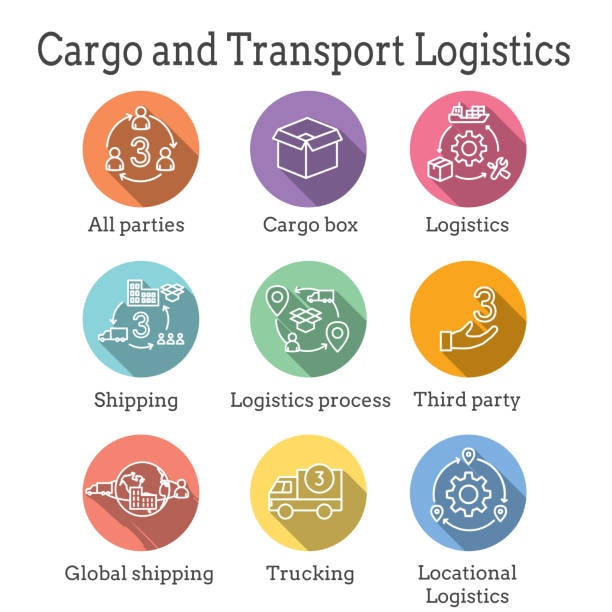
Find out all about third party logistics 3pl firms (3PL) – service, advantages, selection strategies, and the ways professional 3PL service providers such as GWT Worldwide can make your supply chains more efficient in all parts of the world.
What is a Third-Party Logistics Company?

A third-party logistics company (3PL) is an external service provider that takes charge of different matters concerned with logistics, as well as supply chain of a business. They are specialist companies that are involved in warehousing, fulfillment centers storage management, transportation, distribution as well as ensuring effective movements of goods between its origin and destination enabling business organizations to concentrate on their core competencies.
Third-party logistics players are between the manufacturers, retailers, and the consumers and provide a complete solution, which makes the supply chain operations smooth. They use their knowledge, technology, and network in partners to provide affordable and dependable logistical services both locally, nationally and internationally.
The Evolution of Third-Party Logistics Services
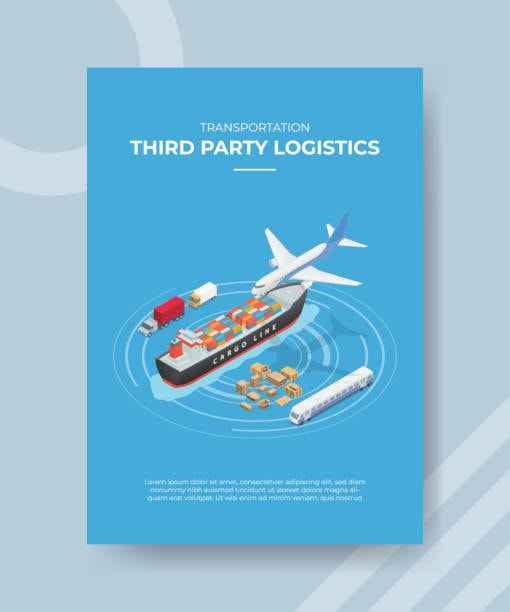
The greying nature of logistics has taken quite some time in the recent past, and third party logistics is fast becoming an important part of contemporary supply chain management. Most logistics processes were initially carried out by the businesses itself, but with the growth in global trade and rising need to meet the demands of customers, the companies started to outsource logistic processes.
Growth of e-commerce and globalization and technological development has further promoted growth of 3PL services. The current third-party logistics providers are capable of providing highly developed solutions with the usage of artificial intelligence and real-time tracking of the supply chain as well as advanced analytics to minimize operational costs and maximize performance.
Core Services Offered by Third-Party Logistics Companies
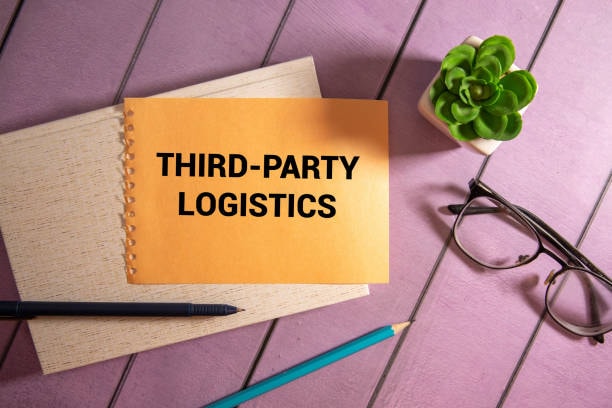
Warehousing and Distribution
3PL providers work within the framework of well-located warehouses and distribution centers that can be called the places of inventory storage and order fulfillment. These warehouses have sophisticated warehouse operation floors, automated sorting machinery, and climatic controlled conditions in order to provide the best working environment to different kinds of products during the fulfillment process .

Competent freight companies such as GWT Worldwide have several warehouse sites in diverse geographic areas to give them a big geographic coverage and shorten transfer distances and this would significantly lower their transportation expenses and enhance transport rates to their clients.
Transportation Management

The basic services provided by third-party logistics include transportation, which covers different types of transportation available such as vận chuyển hàng không, sea freight, ground transportation, and rail services. 3PLs companies have negotiated on the best rates with the different carriers involved in transportation as well as optimizing routing and consolidating shipments which has helped them realize some cost savings to the clients they serve.
Complex transportation management systems allow the real time tracking, the optimization of routes and a carrier performance monitoring so that the goods can be delivered efficiently and timely.
Inventory Management
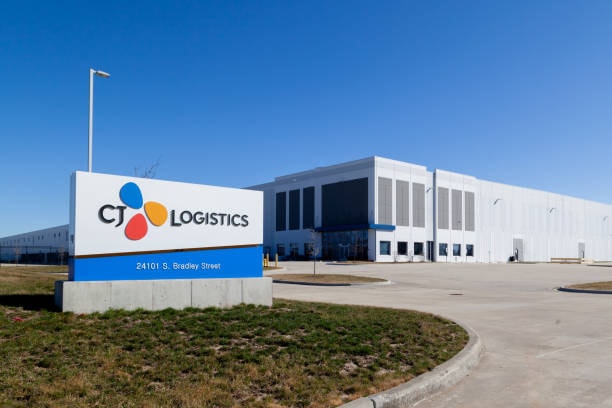
Inventory management is of great essence to ensure that the stock is maintained at an optimum level, and the cost of carrying is as low as possible. Third party logistics are also using very advanced inventory management systems to manage inventory, which with real time visibility on stock, automating reordering, and detailed reports on inventory performance.
The systems will enable businesses not to run out of stocks or overstock them to increase cash flow and customer satisfaction and to minimize warehousing and disposal expenses.
Order Fulfillment and Processing
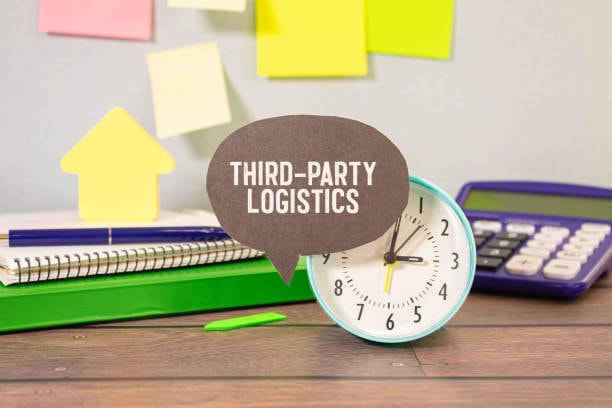
Third-party logistics providers are involved in the second stage of the process; they take charge of finalizing the whole order process which involves taking of orders, pick, packing and shipping of the products to the final customers. They operate effective fulfillment processes that are precise and fast with automated systems in place to minimize failings and speed in which these processes are carried out.
A lot of 3PL providers provide same-day or next-day deliveries services which is crucial especially to online businesses which should deliver their products quickly through an efficient shipping process as per customer expectations.
Customs Clearance and International Trade
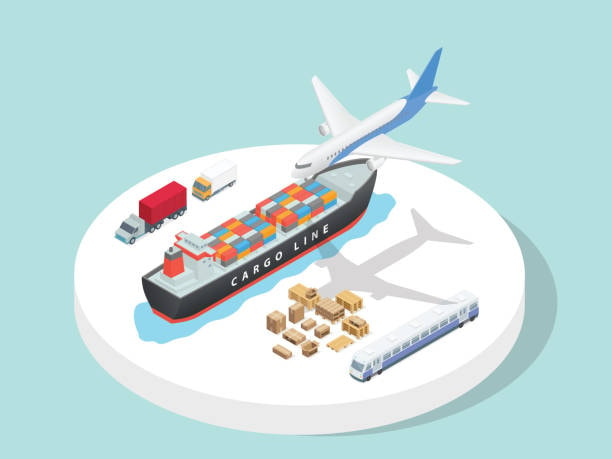
To businesses dealing in international trade, third-party logistics firms are also important in customs clearance services since they assure that their businesses follow through the rules on importing and exporting equipment to various countries. They make documentation, calculate duties, and meet regulatory requirements that involve shipping carriers, minimizing the delays and preventing expensive fines.
Established 3PL providers have their connections with customs and are informed about the alterations in trade regulations, which can be a great asset of a company having to deal with international shipping needs.
Benefits of Partnering with a Third-Party Logistics Company
Cost Reduction and Efficiency
The benefits associated with the availability of cost savings is one of the main reasons to work with a third-party logistics company. 3PL companies enjoy economies of scale due to serving a larger number of clients; thus, they are able to negotiate a more favorable price with carriers and cut costs of operations when sharing resources, and infrastructure.
Companies are able to avoid capital investment needs by renting only the services which they need instead of investing in warehouses, transportation vehicles, and logistics technology since logistics costs are adjusted to be variable.
Access to Expertise and Technology
Third-party logistics companies also lay much emphasis to logistics technology and they are well equipped with warehouse management solutions, transportation management systems and tracking services. Partnership with a 3PL provider allows companies to use such sophisticated technologies without having to make major investment upfront.
Professional 3PLs services firms have also logistics professionals based who are knowledgeable on the industry trends, regulatory standards and best practices and this can be offered to enhance the supply chain performance.
Scalability and Flexibility
The third party logistics providers would provide services that are scalable and can accommodate business needs in terms of seasonality of the business and condition of the market. They can fastly respond by changing warehouse space, transport capability and workforce to meet the demand or to open new markets.
The flexibility is especially useful to companies with explosively growing business or businesses affected by the seasons where they can fluctuate to meet the requirement without capital commitment or investments in the infrastructure.
Focus on Core Business Activities
The costs of outsourcing logistics to third party provider enables businesses to divert its resources and focus towards core operation like product development, marketing and customer service. Such emphasis on core competence tends to bring better business performance and competitiveness.
The management teams will be able to focus on the strategic initiatives as opposed to the details of operations and they will make better decisions and resource allocations.
Global Reach and Network Access
The third party logistics firms with established networks already have a network of partners, agents, and installations in more than one country and region. This international coverage can be used to aid companies in entering other markets without requiring the business to provide local logistics systems in new markets.
International Companies such as GWT Worldwide are utilizing their global locations to offer cross-border logistic services such as China Europe railway logistics and international freight forwarding services.
Types of Third-Party Logistics Providers
Asset-Based 3PL Companies
Those third-party logistics providers called asset-based are the owner and operator of the transportation fleets, warehouses and distribution centers. The capital investment in physical assets of these companies is also high, allowing these kinds of companies more control over the quality and capacity of provided services, but it might restrict the ability of adaptation of these companies to changeable market conditions.
An asset-based 3PL usually provides more dependable prices and service levels since they can control their own resources and thus assure capacity.
Non-Asset-Based 3PL Companies
Non-asset based 3pl companies specialize in logistics organization and control but do not have their own means of transport and warehousing. They can use their relationship with carriers, those who run the warehouses, and the other service providers to offer the round logistics.
It is common that these businesses give more flexibility and are able to meet changing needs at a faster rate because they are not put in check by fixed assets investments. They usually do very well at the fulfillment of bespoke solutions and new services.
Hybrid 3PL Models
Most of the contemporary third parties in logistical firms implement a mixture of asset-based and non-asset-based structures. They could possess some key resources, leaving to external providers some extra space and specialized services.
This mixed model enables 3PL firms to exercise control over essential operations and at the same time provide flexibility and extensive coverage of services to their customers.
Key Industries Served by Third-Party Logistics Companies
E-commerce and Retail
E-commerce business is probably one of the biggest and rapid market segments of third-party logistics services. Sophisticated fulfillment needs such as quick order processing, good inventory management and flexibility in shipping products are some of the factors that must be in place to enable online retailers to meet expectations of their customers.
e-commerce 3pls provide Amazon FBA and multi-channel fulfillment, as well as returns handling services, so that online companies are able to compete online in the digital economy.
Manufacturing and Industrial
Third party logistics is used by manufacturing businesses to ensure they can have complex supply chains which involve many suppliers, production and distribution centers. Third party logistics providers are beneficial as they enable organizations optimize their inventory, cut down on transport costs and enhance delivery performance.
Industrial logistics might involve heavy machineries, dangerous materials or temperature errors, and the latter can be handled by expert 3PL providers.
Healthcare and Pharmaceuticals
The logistics needs associated with healthcare, which require temperature-controlled storage, are regulated and have chain of custody documentation. Third party logistics providers that operate in this industry will undertake specialistic facilities and processes that guarantee the product integrity and regulation.
Pharmaceutical or branch of supply chain Logistics also need an advanced track and doc element to enable compliance with Good Distribution Practice (GDP) as well as ensuring that product can be tracked down the chain.
Automotive Industry
Automaker companies and suppliers have a high demand in creating an accurate logistics plan, allowing them to run a just-in-time processing system and a globally-extended supply chain. Third party logistic services that are specialized that are offered in this sector are that of sequencing, kitting and line ride delivery.
Automotive industry also need good quality control mechanisms and being able to manage recall and warranty returns effectively.
Food and Beverage
The supply chain of food and beverages has specific issues associated with perishability of the goods, temperature management and food regulations. The third-party logistics firms that supply this sector have temperature special safe houses, packing materials, and uphold high-hygiene standards.
Other services provided by these providers are following lot numbers, managing expiration dates, and FIFO (First In, First Out) rotation of inventory to guarantee the regulatory compliance of products and their quality.
Technology Integration in Third-Party Logistics
Warehouse Management Systems
The modern service providers of third party logistics have advanced warehouse management systems (WMS) which ensures location through optimization of the storage facility, automatic picking system and real time inventory service. These systems incorporate with enterprise resource planning (ERP) systems of the clients to guarantee the flawless movement of information.
The latest WMS systems use artificial intelligence and machine learning to constantly maneuver to optimize warehouse processes and for forecasting to be able to maintain the most optimal inventory.
Transportation Management Systems
Transportation management systems (TMS) helps third-party logistics providers to streamline shipping activities, identify the most cost-effective carrier and monitor shipments in real-time. Automated freight audit and performance reporting is also supported in these systems.
The possibility to integrate with carrier systems ensures smooth booking, tracking, and documenting of transportation process.
Track and Trace Technology
The ability to track and trace in real-time has been one of the key requirements of a current third party logistics services. Location and state of shipment is continuously visible through GPS tracking, RFID labels and IoT sensor.
The technology allows making proactive issues resolutions and helps customers to be aware of their shipment status during delivery.
Data Analytics and Reporting
The third-party logistics companies use the latest analytical platforms to measure the performance of their supply chains, pinpoint areas that could be optimized and give meaningful insight to their clients. These systems provide lengthy reports of important performance indicators like on-time delivery and inventory turns, cost per shipment.
The predictive analytics feature assists in predicting the demand trends, inventory, as well as avoiding any interruptions to the supply chain.
Selecting the Right Third-Party Logistics Partner
Assessing Service Capabilities
In conducting possible third party logistics vendors businesses need to take some time to access the service capability and the geographical locations of the provider. Remember to ask yourself if the 3PL will be able to provide services to your kind of product, requirements to move it in quantities and special needs.
Review the technology platforms, reporting facilities, and integration avenues with your system so that you can be able to work together smoothly using the provider.
Financial Stability and Reputation
Financial viability of a third party logistics provider is very vital, since logistics outsourcing forms a major dependency in logistics. Do research on the financial health of the company, credit rating, and performance history of the company.
Case studies and reviews by clients offer a good image of the reliability of the provider, quality of services offered and the possibility of overcoming challenges.
Scalability and Growth Support
Select a third party logistics provider that would be able to support your business growth and future needs. Assess their ability to grow its operations, enter new markets and be able to adjust business models as they come up.
Evison also concluded that one should consider how the provider invests in technology, facilities, and the development of personnel to see they have capability of supporting long-term aims.
Compliance and Security
Make sure prospective 3PL partners have the right certifications, licenses and insurance coverage to service your geography of your industry. Be sure that they are complying with regulations applying to them and security protocols.
In cases where one wants to leave sensitive products or data with a third party provider, security particularly of physical facilities and information systems are of high importance.
Cost Structure and Transparency
Learn how the provider charges and what base rates, and additional charges and incentives are involved. Search out non-opaque pricing models which are in line with your business goals and which present predictable economics.
You should focus on the overall cost of ownership (including a possibility of hidden fees) instead of paying only attention to the lowest prices stated.
International Logistics and Cross-Border Operations
Global Trade Compliance
The third party logistics company operating only in the international field has competence in global trade law, customs, and documentation. They assist firms to regulate through the international shipping regulations and even adhere to the import and export regulations of different countries.
Professional 3PLs are kept abreast of developments in trade policies, tariffs and free trade agreements that can affect operations of their clients.
Multi-Modal Transportation
International logistics needs the alignment of several types of transport: oceanic, air, rail and ground. Third party logistics companies maximise the selection of the modal following cost transit time and service demand factors.
Global transportation companies such as GWT Worldwide provide international multi-modal transport solutions, such as special China-Europe railway services which offer cheap options to air transport with quicker delivery time than ocean transportation.
Currency and Risk Management
Global logistics exposes companies to currency trading, political risks and laws. Third-party logistics companies with experience can help advise on the removal of risks and even offer to hedge the currency.
They also have back-up plans to disruption of supply chains that are associated with natural disasters, political events or trade disputes.
E-commerce Fulfillment and Third-Party Logistics
Amazon FBA Integration
Several third-party logistics companies also provide more specialised Amazon FBA (Fulfillment by Amazon) services, such as preparation, labelling and delivery to Amazon warehouses. The services also assist the sellers to streamline their Amazon performance and stay in compliance with the Amazon stringent regulations.
GWT Worldwide offers all-rounding Amazon FBA services where it offers high-quality labeling services and effective transport to Amazon fulfilment centers.
Multi-Channel Fulfillment
To sell e-commerce goods, modern businesses have several online channels, i.e. the seller can trade via their websites, Amazon, eBay, as well as through their marketplaces. Third-party fulfillment companies, also provide integrated fulfillment services, which route orders in the most cost-effective manner and lets the inventory control all channels.
Fine systems ensure that there is no overselling of the products since there is the synchronization of all the sale encounters in real time.
Returns Management
The importance of e-commerce returns processing has become uncleared with the growth of online shopping. Third-party logistic shops provide the facilities of managing reverse logistics and the returns as well because they take the returns, they will check them, refurbish them, restock them and dispose of them as well.
The effective returns processing enhances customer satisfaction and optimizes the recovery of returned merchandise.
Supply Chain Visibility and Communication
Real-Time Reporting
There are advanced reporting dashboards offered by third-party logistics providers that enable supply chains to give real-time visibility to the performance of supply chains. The systems monitor the important parameters of inventory fulfillment, order fulfillment status, shipping expenses, and delivery.
Automatic notifications are provided that warn the clients about the possible fault or exception, so the problem can be solved before the client notices it and provides better customer service.
Customer Portal Access
Most 3PL companies offer internet-based customer portal where clients could view their logistics data, make new orders, track those shipments, and perform reporting. These self-service functions help enhance operational performance and offer 24-/7 access of vital information.
Mobile applications provide the same capabilities of portals to smartphones and tablets and allow managing logistics anywhere.
Integration Capabilities
New third-party logistics providers come with powerful integration features with popular e-commerce sites, enterprise resource planning, and other business applications. APIs and EDI integration allows automatic processes and smooth data integration.
Written-out data is abandoned as a result of such integration, and the efficiency of the overall supply chain is enhanced.
Quality Control and Performance Management
Service Level Agreements
Third-party logistics relationships are outstanding and well defined in their expectations of performance and responsibility based on formal service level agreements (SLAs). Some of the common metrics discussed by these agreements include order accuracy, on time delivery and response time.
Periodic service review and scorecarding are useful in ensuring that service is maintained and areas where there is an opportunity to improve are found.
Continuous Improvement Programs
Third party logistics that have been successful in their operation have continuous improvement programs that review and refine their operation on frequent basis. Such programs can comprise lean manufacturing techniques, Six Sigma tools as well as customer data review.
Effective cooperation between 3PLs and their partners in the launching of improvement efforts is likely to benefit both of the parties as well.
Quality Assurance Procedures
Resilient quality assurance systems guarantee the homogeneity of services delivery and product completeness during the logistics procedure. Such operations can be incoming inspection, checking of orders, packaging standards, or reviewing of shipping documents.
The constant quality checks and audits allow upholding high standards and preventing the problems that could hurt the customers.
Environmental Sustainability in Third-Party Logistics
Green Logistics Initiatives
Lately, environmental sustainability has been gaining prominence in logistics operation where a number of third party logistic providers have adopted advanced methods of green initiatives in an effort to minimize the carbon footprint. Such measures can involve fuel-efficient transport, programs of renewable energy consumption and waste reduction.
Sustainable packaging practices and consolidation efforts ensure that there is less impact in the environment with operations being efficient.
Carbon Footprint Reduction
Third-party logistic providers are making investments in technologies and practices that cut the number of greenhouse gases, such as electric vehicles, alternative fuels, and route optimization software. The products of some providers form carbon offsets or ship carbon-neutral.
Sustainability is a competitive advantage because clients are ever mindful of the environmental performance of their logistics partners in their choice of partners.
Regulatory Compliance
Regulations in the environmental arena keep on changing especially in the emission regulations, waste regulations, and packaging standards. The third-party logistics code assists their customers to stay on top of these regulations and keep on track.
Affirmative action in environmental compliance saves penalties and ensures sustainability goals of the corporation.
Future Trends in Third-Party Logistics
Artificial Intelligence and Machine Learning
Predictive analytics, demand forecasting, and autonomous systems with a help of artificial intelligence and machine learning technologies transform processes in third-party logistics. Conflagration gives the possibility to plot the events more precisely, lower the cost, and enhance the level of service.
The use of AI in chatbots and virtual assistants is also enhancing customer service and performance efficiency in logistical activities.
Robotics and Automation
Automation of warehouses is going further where sortation systems, automated guided vehicles and robotic picking systems are being used. Those technologies enhance precision, quickness, and security and diminish the price of human labor.
To stay competitive and keep up with the increasing customer demands of rather quick and accurate fulfillments, third-party logistics providers are investing a lot in automation.
Blockchain Technology
The Blockchain technology has the potential to be beneficial in the supply chain by ensuring transparency, securities, and traceability. Third-party logistics companies are working on application of block chain in terms of documentation, authentication and in terms of smart contracts.
Such technology would offer a lot of potential in trust and efficiency of complex and multi-party logistics processes.
Giới thiệu về GWT Worldwide
Shenzhen Guanwutong International Freight Forwarding Co., Ltd. (GWT Worldwide) is a modern example of the third-party logistics company that provides all aspects of global logistics services to businesses anywhere in the world. GWT Worldwide is a professional logistics service facilitator mainly focusing on freight forwarding, supply chain optimization and cross border e-commerce supply chain.
As one of the major players in China and overseas markets, GWT Worldwide provides credible, affordable and tailor-made logistic solutions in both the domestic and the overseas markets. Their main service offering is air freight and sea freight, the China-Europe railway, international express and courier services, custom clearance and warehousing, and Amazon FBA in shipping which features professional labeling provision.
GWT Worldwide believes in being efficient, transparent, and also customer-satisfactory and that is why they combine the use of quality logistics technology and a world broad network of trusted partners. Through this strategy, they manage to move goods origin to destination in safe, fast and legal ways, which makes them the ideal logistical partner to any company, whether a small establishment or a large importer /exporter company.
Cost Considerations and ROI Analysis
Total Cost of Ownership
Businesses should also put into consideration the cost of ownership during the third-party logistics evaluation process instead of focusing on the rates that are quoted. The analysis must comprise direct costs which are the cost of warehousing, transportation and handling charges and indirect costs which comprise the carrying costs of inventory, order accuracy effects and customer service effects..
There should also be consideration of hidden costs like setup or minimum volume requirements etc in the costs comparison analysis so that correct cost comparisons are made.
Return on Investment Calculation
Third-party logistics partnerships can also have a positive impact on the service levels, time to market as well as scales other than direct costs-related ROI. Such intangibles can have a large influence on the performance of the businesses and the competitive position of the business.
The companies are advised to come up with elaborate ROI models that consider quantitative and qualitative benefits in analysis of 3PL partnerships.
Variable vs. Fixed Cost Structure
The provision of third party logistics activities normally changes the fixed cost, which is displayed to the logistics activities to be a variable cost and this leads to increased financial flexibility and effective management of the cash flow. The cost base enables the businesses to grow at a lesser-efficient rate and lessens the financial risk.
Variable cost model also allows a greater match between the cost of logistics and business performance since these costs change with the level of activity.
Risk Management in Third-Party Logistics
Business Continuity Planning
Third party logistics provider companies that are good to work with have business continuity plans that cover most of the possibilities like natural disasters, labor strike, and breakdown of system among others that result in disruption of operations. Such plans allow many features like backup facilities, alternative route transportation facilities and emergency procedures.
The availability of continuity plans, which is regularly tested and updated, will allow logistics operations to continue to provide service levels in situations not expected to happen.
Insurance and Liability Coverage
The logistic relationships of the third party transfer large liability of product losses, damages or any delays. Adequate insurance cover and liability arrangement also serves as a shield and guarantor to ensure that both bodies are well taken care of with the possibility of reimbursement against the loss.
Companies are advised to thoroughly check through insurance covers and liability limits so as to get the best insurances and be aware of how much risk they are exposed to.
Data Security and Privacy
The exchange of confidential business facts to the third party logistics agents produces a security and confidentiality hazard. Data protection Data protection requires adequate measures such as encryption, access controls and audit trail.
Routine security checks and adherence to the applicable data protection laws are some of the measures that can subdue these risks and retain customer confidence.
Performance Metrics and KPIs
Operational Metrics
Some of the most common key performance indicators of third party logistics activities are order accuracy rates, on time delivery, inventory accuracy, and cycle time. The metrics give quantifiable values of the efficiency of operations and service levels.
Frequent evaluation and reporting of such measurements allow measuring changes in improvement and optimization of performance.
Financial Metrics
The economic efficiency of logistics activities is observed through such cost metrics as the total cost of the shipment, inventory carrying cost, and cost of transportation. The metrics are applicable in determining optimization measures and strategic decision-making processes.
The performance is compared with industry standards and best practices and this is used to give a background to the performance and sets targets to improve on performance.
Customer Satisfaction Metrics
The effectiveness of the logistics operations is reflected in customer satisfaction solutions like order-fulfilment rates, requisite accuracy in delivering and resolving customer complaint within the specified time. The metrics have a direct influence on customer retention and business growth warehouse management software.
Periodical surveys of the customers and their analysis enable to detect the service gaps and ways of improvement.
Integration with Enterprise Systems
ERP System Integration
To ensure its efficient operation and proper flow of the information, third-party logistics providers should have seamless integration with the ERP systems of the clients. It is due to this combination that there is automation of orders, up to date inventory and ability to report fully on finance shipping costs entire supply chain.
With modern integration platforms and APIs, such connections are easy to find with secured data and system stability fulfillment center.
E-commerce Platform Integration
Connection to e-commerce systems like Shopify, WooCommerce, and Magento allows making orders automatic after the app master log-in and syncing stocks in real time. Such automation limits the amount of manual processing, as well as enhancing the accuracy of orders transportation services.
The omnichannel retail is served by multi-platform integration capacities that support the control process and inventory management across the entire sales channels shipping costs.
Business Intelligence Integration
Integration with business intelligence platforms can unlock sophisticated analytics and reporting capability to provide more insight on the capabilities and performance of logistics services and their optimization distribution services. These integrations are effective in making decisions based on data and strategic planning manage inventory.
Dynamic dashboards and reporting automation decrease administrative costs and increase transparency into logistics operations freight forwarder
freight forwarders.
Phần kết luận
The thrid party logistics firms are such services that can now not be done away with in setting-up a market venturing to streamline its supply chain activities, especially for ecommerce businesses, and work to stay afloat within the current globalized economy fourth party logistics provider. The end-to-end services such as warehousing and transportation, customs clearances as well as the integration of technology by professional 3PL assists companies to concentrate on their core functions whilst promoting efficient and cost-effective logistics activities.
The choice of third-party logistics has to be done with accurate consideration to the service, technology infrastructure, availability, scaling and business-goal alignment. Firms such as GWT Worldwide confirm how the modern 3PL companies integrate globalization with advanced processes and expert knowledge to provide superior services to their client throughout the various sectors and geographical regions.
With the development of the logistics industry, using new technologies, sustainability programs, and new customer requirements, third-party logistics providers will become more and more critical to the successfulness of conducting a business and supply chain innovations.


Thank you for reading!
Have questions, corrections, or better ideas? We’d love to hear from you!
We value every piece of feedback and promise to reply within 24 hours. Let's make this guide better together!
Note: Spam comments will not be published.